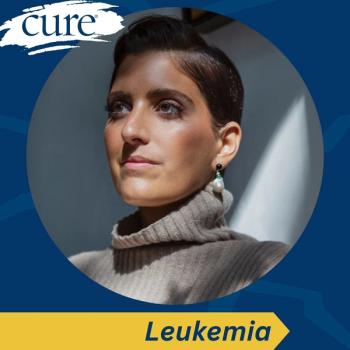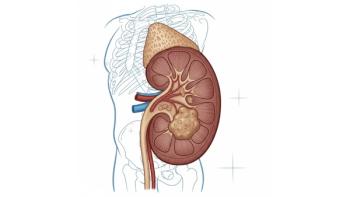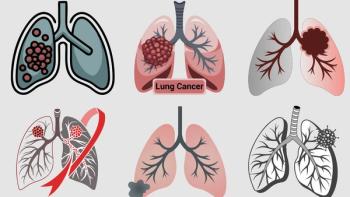
Dr. Nicolas Girard discussed the current treatment options for patients with EGFR-mutant lung cancer, including emerging combination regimens.

Dr. Nicolas Girard discussed the current treatment options for patients with EGFR-mutant lung cancer, including emerging combination regimens.

After Barbara Tatham’s passing from metastatic sarcoma, her sister and friend completed her memoir, highlighting caregiving, resilience and family support.

As a Lynch syndrome previvor, I felt that the film “Love, Danielle” struck a deeply personal chord.

As we approach Lung Cancer Awareness Month this November, it’s important to reflect on the latest developments and insights in lung cancer research.

The FDA granted orphan drug designation to cintredekin besudotox for glioblastoma, supporting further research for this aggressive brain cancer.

Dr. Fred Hirsch highlighted how knowledge of the molecular characteristics of non-small cell lung cancer enhances understanding of the disease.

In locally recurrent inoperable or metastatic TNBC, Datroway resulted in improvement in overall survival and progression-free survival.

In EGFR-mutated non-small cell lung cancer Tagrisso with pemetrexed and chemotherapy was associated with an improvement in survival.

October is Breast Cancer Awareness Month, and CURE is here to address some of the most common questions patients have after a breast cancer diagnosis.

My cancer journey began with a surgical oncologist who extracted my one-inch pancreatic tumor, taking with it the top third of my pancreas.

A biologics license application for PVEK has been submitted to the FDA for blastic plasmacytoid dendritic cell neoplasm, a rare blood cancer.

CAR-T cell therapy has cured some children with blood cancers and is being studied in solid tumors, where responses differ due to how these cancers grow.

As we kick off Breast Cancer Awareness Month, it’s an opportune time to reflect on some of the most important breast cancer stories shared last month.

September’s top gastrointestinal cancer news covered long-term Gleevec results for GIST, a pancreatic cancer vaccine and FDA designations.

The author and advocate, facing leukemia for the third time in 15 years, sat down for an interview with CURE.

As September concludes, the landscape of GU oncology continues to evolve, with important developments in prostate, bladder, kidney and other cancers.

This guide on stage 2 kidney cancer covers key info, treatments and what to expect, helping you prepare for informed discussions with your care team.

Jennie Smythe, diagnosed with breast cancer at 41, now works with Susan G. Komen to amplify patient voices and drive progress in research and policy.

Kelly Dyckman works to help women reclaim their confidence in intimacy following a cancer journey, as she explained in an interview with CURE.

A breast cancer survivor reflects whimsically on how she might have aged with two breasts instead of one.

This stage 1 prostate cancer guide explains diagnosis, Gleason scores and the choice between surgery, radiation and active surveillance.

Neuroblastoma is the most common cancer in infants and most commonly occurs in children younger than 5 years old.

Kelly Dyckman discusses the mind-body connection during cancer care, offering tools for coping with diagnosis and intimacy struggles.


The FDA has approved Zepzelca with Tecentriq or Tecentriq Hybreza for extensive-stage small cell lung cancer.

Lung cancer can be overwhelming, but learning about types, stages, treatments and support can help patients feel more prepared for their care journey.

Prior to my diagnosis with Stage 3B Lung Cancer, I had spent many years reading self-help books. I worked hard, but never felt successful, or took pride in myself.

Recent clinical trial results, real-world safety data, and patient experiences highlight meaningful advances in blood cancer care.

The FDA approved Guardant360 CDx to identify adults with ESR1-mutated, ER-positive, HER2-negative breast cancer eligible for treatment with Inluriyo.